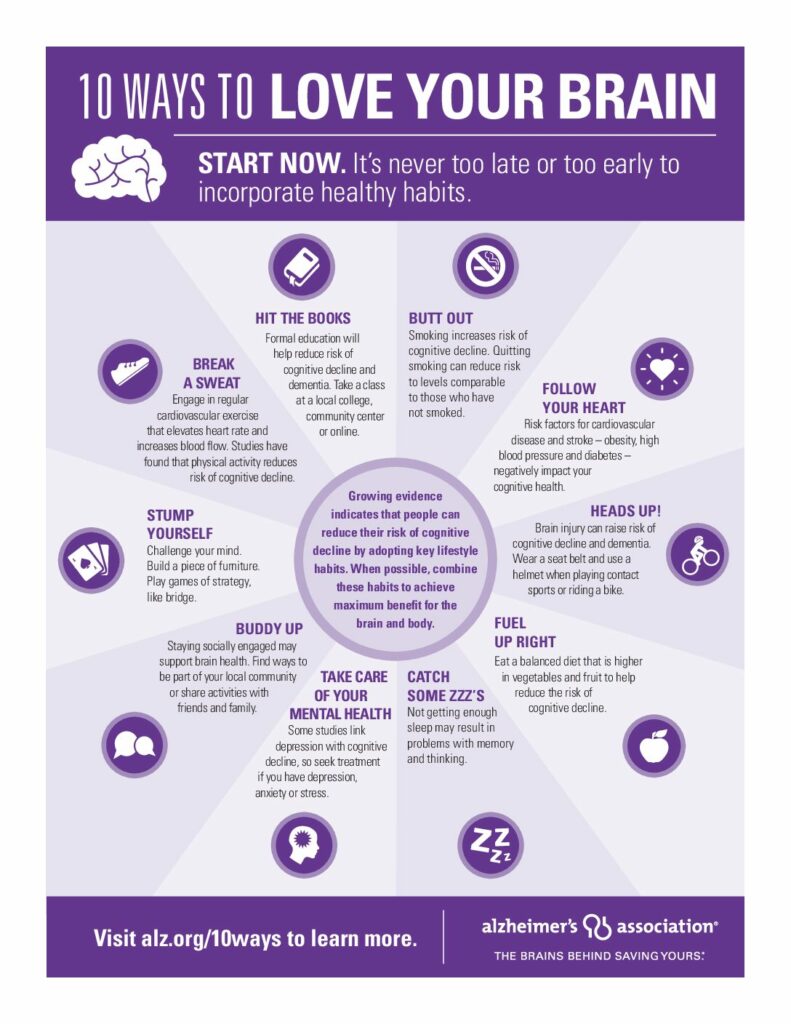This past weekend, my husband and I visited a dear friend–a fellow baby boomer we’ve known for more than 30 years. Unfortunately, he’s now suffering from Alzheimer’s disease (AD).
The conversations that afternoon were frustrating, to say the least—our friend rarely completed a sentence, he referred to many objects as “those things,” as opposed to their actual names, and he couldn’t recall major life events (like being in the service). I don’t know if he remembered our names.
As a healthcare professional who speaks frequently about dementia and AD, it was interesting listening to the exchanges. But as a friend, it was heartbreaking. I left that night thinking desperately of resources I could introduce to our friend’s wife.
Fortunately, June is Alzheimer’s & Brain Awareness Month. This is an opportunity to hold a conversation about AD and other dementias—a major health issue. According to the Alzheimer’s Association, “Everyone who has a brain is at risk to develop Alzheimer’s, the only leading cause of death that cannot be prevented, cured or even slowed.”
That is scary—not much you can do about this disease once it strikes.
Alzheimer’s is a fatal disease that kills nerve cells and tissue in the brain. It affects the “executive” brain processes that make you…you: remembering, thinking, and planning. Eventually, those suffering with AD will lose their ability to communicate, recognize family and friends, and care for themselves.
In the United States alone, more than 5 million individuals are living with the disease, and over 15 million—like our friend’s wife—act as caregivers.
So let’s concentrate on activism and support…
Wear purple this month, and talk about AD and dementia. If you’re still working, make a commitment to the well-being of your company’s employees. Begin organizing a team and sponsors for the Walk to End Alzheimer’s, coming to a community near you this fall. This walk is the world’s largest event to raise awareness and funds for Alzheimer’s care, support, and support and research.
…And prevention!
Check out this pdf from the Alzheimer’s Association for steps you can take to protect your brain throughout your life. And for specific ways to incorporate brain-supporting foods and movement into your life, please reach out to me!


